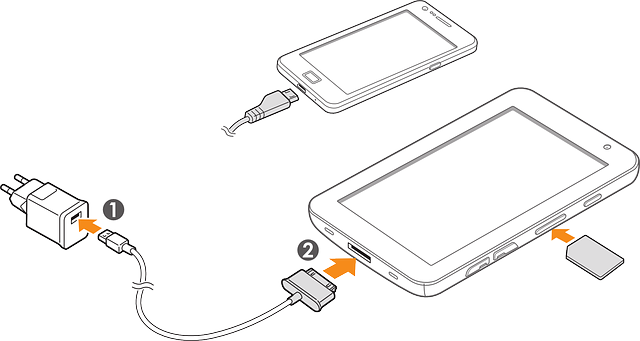In New Jersey, telemarketers must adhere to strict regulations, with the state's Do Not Call list offering residents control over unwanted calls. Recognizing illegal tactics and understanding your rights are crucial. Registering on the registry reduces marketing calls, and reporting abusive practices to the Attorney General's Office is encouraged. Legal counsel specializing in consumer protection can offer tailored strategies against aggressive telemarketers, empowering New Jerseyans to protect their privacy and take charge of nuisance calls.
In the digital age, telemarketing calls have become an ever-present nuisance. Understanding your rights against these practices is crucial for New Jersey residents. This comprehensive guide explores your legal protections against unwanted telemarketing calls and offers practical steps to defend your privacy. Learn about the Do Not Call Registry, identify illegal practices, and discover the legal remedies available to you. If faced with persistent or abusive calls, this article equips you with the knowledge to take action and consult a Do not call attorney New Jersey for expert advice.
What Are Telemarketers and Their Legal Status in New Jersey?

Telemarketers are individuals or companies that engage in the practice of making outbound sales or marketing calls to potential customers, often via phone, email, or text message. They promote and sell various products or services, ranging from financial investments to home improvements. In New Jersey, telemarketing activities are regulated by state laws designed to protect consumers from aggressive or unwanted sales tactics.
New Jersey has specific regulations in place regarding telemarketers, including restrictions on when and how they can contact residents. The Do Not Call Attorney General’s Office plays a crucial role in enforcing these rules. Consumers in New Jersey have the right to register their phone numbers on the state’s Do Not Call list, which significantly reduces unsolicited calls from telemarketers. This legal status ensures that telemarketing practices are fair and transparent, empowering residents to control their privacy and minimize unwanted interruptions.
Recognizing Unwanted Calls: Identifying Illegal Telemarketing Practices

Recognizing unwanted calls is the first step in protecting yourself from illegal telemarketing practices. While many companies adhere to the Do Not Call Registry, some may still employ aggressive or deceptive tactics to reach potential customers. In New Jersey, it’s crucial to be aware of your rights and the legal protections in place. If you consistently receive calls from unknown sources despite being on the registry, or if the callers become persistent and aggressive, it could indicate illegal telemarketing.
Attorneys specializing in consumer protection, like Do not call attorney New Jersey, can help you navigate these issues. They can advise you on how to deal with unwanted calls, including blocking numbers, reporting abusive practices, and taking legal action if necessary. Understanding your rights is essential to stopping illegal telemarketers from harassing you or infringing upon your privacy.
The Do Not Call Registry: How to Protect Yourself in New Jersey

In New Jersey, one effective way to protect yourself from unwanted telemarketing calls is by registering your number on the state’s Do Not Call Registry. This simple step ensures that your personal and business phone numbers are marked as off-limits for telemarketers. The process is straightforward; you can register online or via mail, and it only takes a few minutes to complete. Once registered, you can expect a significant reduction in marketing calls, providing you with more control over your communication preferences.
By law, telemarketers are prohibited from calling numbers listed on the Do Not Call Registry. This means no more annoying sales pitches or pre-recorded messages interrupting your day. If a company violates this rule, individuals have the right to file a complaint with the New Jersey Attorney General’s Office. This not only helps protect you but also ensures that telemarketers adhere to the law, promoting a safer and less intrusive environment for consumers in New Jersey.
Legal Remedies Against Telemarketers: Rights and Options for New Jersey Residents

In New Jersey, residents have legal remedies and protections against aggressive telemarketers. If a consumer feels their rights have been violated, they can take several steps to assert themselves. One key option is to file a complaint with the New Jersey Division of Consumer Affairs, which investigates and resolves issues related to unfair or deceptive practices. This division has the authority to take legal action against violators, including seeking damages on behalf of affected individuals.
Additionally, consumers may choose to involve an experienced do not call attorney in New Jersey. Legal counsel can provide guidance tailored to specific situations, such as negotiating with telemarketers, drafting cease-and-desist letters, or representing clients in court if necessary. The right legal representation ensures that residents understand their rights and have the best chance of resolving telemarketing issues effectively.
Taking Action: Steps to File a Complaint and Seek Attorney Advice

If you’ve had enough and feel your rights have been violated, it’s time to take action. The first step is to gather evidence; save any calls, texts, or emails from the telemarketers, and note down the dates, times, and content. Next, familiarize yourself with New Jersey’s laws regarding telemarketing practices. You can file a complaint with the New Jersey Attorney General’s Office, which has a dedicated division for dealing with such issues. They offer guidance and resources to help you understand your rights and options.
Considering legal action? Avoid the phrase “do not call attorney New Jersey” and instead reach out to consumer protection lawyers who specialize in telemarketing cases. These professionals can guide you through the process, advise on potential compensation, and ensure your rights are protected. Remember, standing up for yourself is a powerful way to combat unwanted calls and help change unethical telemarketing practices.






